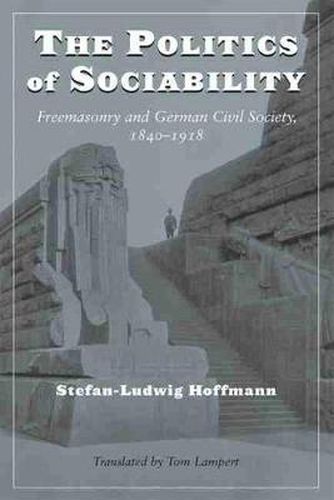Readings Newsletter
Become a Readings Member to make your shopping experience even easier.
Sign in or sign up for free!
You’re not far away from qualifying for FREE standard shipping within Australia
You’ve qualified for FREE standard shipping within Australia
The cart is loading…






This is the first cultural and political history of German Freemasonary in the 19th and early 20th centuries. The practice of Masonic sociability, Stefan-Ludwig Hoffmann shows in this ambitious and original work, reflected an enlightened belief in the political significance of moral virtue for civil society, indeed, for humanity. Freemasons’ self-image as civilizing agents, acting in good faith and with the unimpeachable idea of universal brotherhood, was contradicted not only by their heightened sense of exclusivity; Freemasons unintentionally exacerbated nineteenth century political conflicts by employing a universalist language. Using a wealth of archival sources previously unavailable, Stefan-Ludwig Hoffmann shows how Freemasonry became a social refuge for elevated and liberal-minded bourgeois men who felt attracted to its secret rituals and moral teachings. German Freemasons sought to reform self and society, but, Hoffmann argues, ultimately failed to balance modern politics with a cosmopolitan ethos.
$9.00 standard shipping within Australia
FREE standard shipping within Australia for orders over $100.00
Express & International shipping calculated at checkout
This is the first cultural and political history of German Freemasonary in the 19th and early 20th centuries. The practice of Masonic sociability, Stefan-Ludwig Hoffmann shows in this ambitious and original work, reflected an enlightened belief in the political significance of moral virtue for civil society, indeed, for humanity. Freemasons’ self-image as civilizing agents, acting in good faith and with the unimpeachable idea of universal brotherhood, was contradicted not only by their heightened sense of exclusivity; Freemasons unintentionally exacerbated nineteenth century political conflicts by employing a universalist language. Using a wealth of archival sources previously unavailable, Stefan-Ludwig Hoffmann shows how Freemasonry became a social refuge for elevated and liberal-minded bourgeois men who felt attracted to its secret rituals and moral teachings. German Freemasons sought to reform self and society, but, Hoffmann argues, ultimately failed to balance modern politics with a cosmopolitan ethos.